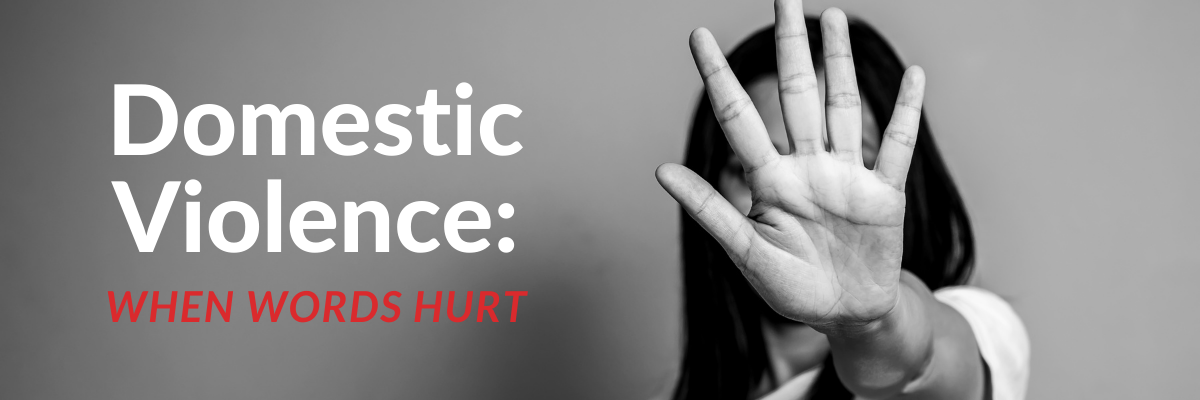DOMESTIC VIOLENCE: WHEN WORDS HURT

As we close out Domestic Violence Awareness Month, we wanted to focus on a form of violence that doesn’t get a lot of attention and that’s verbal abuse. Sometimes it can take a lifetime to dislodge the hurtful words of attack that someone may hurl against us. Words are also used as weapons of hurt, destruction and control. According to psychologist, a verbal abuser will dismiss their victims and use words to sear their souls.
A verbal abuser may regularly tell the victim they’re too sensitive, have no sense of humor, etc., which denies the victim’s inner reality. Any form of ordering or demanding is a form of verbal abuse. Threatening is a common form of verbal abuse and can either be very explicit or subtle.
In a recent Psychology Today article, Dr. Brit Brogaard, D.M.Sci., professor of philosophy and the Director of the Brogaard Lab for Multisensory Research at the University of Miami says the following are signs of verbal abuse:
- Verbal abuse disguised as jokes. The abuser may say something very upsetting to the victim of the abuse and, after seeing her reaction add, “It was just a joke!” Abuse is not OK in any form; jokes that hurt are abusive.
- Blocking and diverting. Blocking and diverting is a form of withholding in which the abuser decides which topics are “good” conversation topics. An abuser practicing this form of abuse may tell the victim that she is talking out of turn or is complaining too much.
- Accusing and blaming. In these forms of abuse, the abuser will accuse the victim of things that are outside of his or her control. He or she might accuse a partner of preventing them from getting a promotion because the partner is overweight, or ruining his or her reputation because the partner dropped out of college.
- Judging and criticizing. Judging and criticizing are similar to accusing and blaming but also involve a negative evaluation of the partner. As Evans points out, “Most ‘you’ statements are judgmental, critical, and abusive.” Some abusive judging and criticizing “you” statements are: “You are never satisfied”; “You always find something to be upset about”; and “No one likes you because you are so negative.”
Trivializing. Trivializing is a form of verbal abuse that makes most things the victim of the abuse does or wants to do seem insignificant. The abuser might undermine his or her work, style of dressing, or choice of food.
- Undermining. Undermining is similar to trivializing, which consists of undermining everything the victim says or suggests or making her question herself and her own opinions and interests.
- Threatening. Threatening is a common form of verbal abuse and can be very explicit, such as, “If you don’t start doing what I say, I will leave you.” Or it can be more subtle, such as, “If you don’t follow my advice, others will find out that you are a very unreliable person.”
- Name-calling. Name-calling can be explicit or subtle. Explicit name-calling can consist of calling the victim of the abuse a “bitch” or other hurtful words. But it can also be more subtle, such as when someone says things that are implicitly hurtful, for instance, “You are such a victim,” or “You think you are so precious, don’t you?”
- Forgetting. The category of forgetting covers a range of issues ranging from forgetting a promise to forgetting a date or an appointment. Even if the abuser really forgot, it is still abuse, because he ought to have made an effort to remember.
Anthem Strong Families offers mini clinics and workshops to prevent and identify Domestic Violence. For more information contact us at 214.426.0900.

